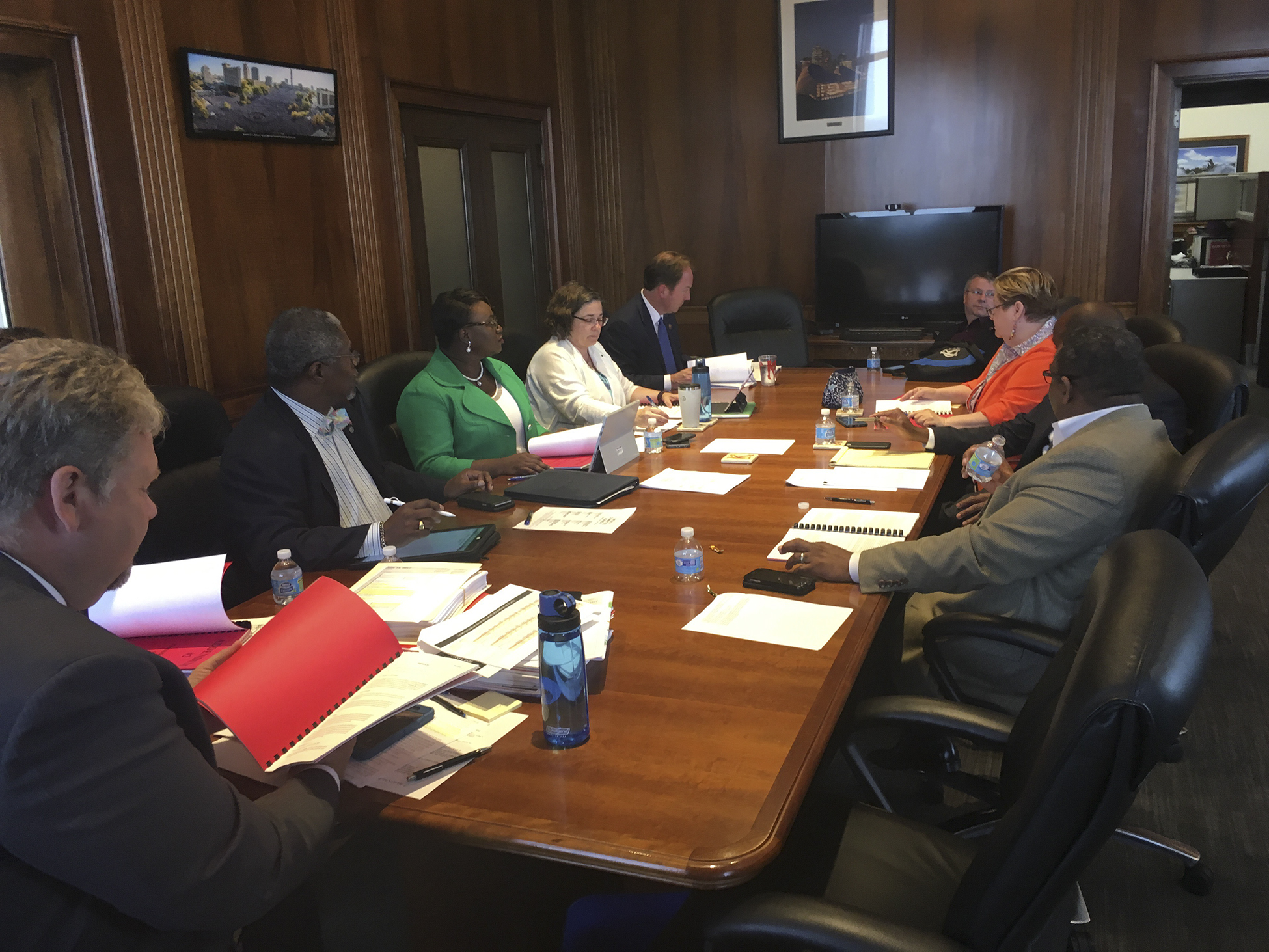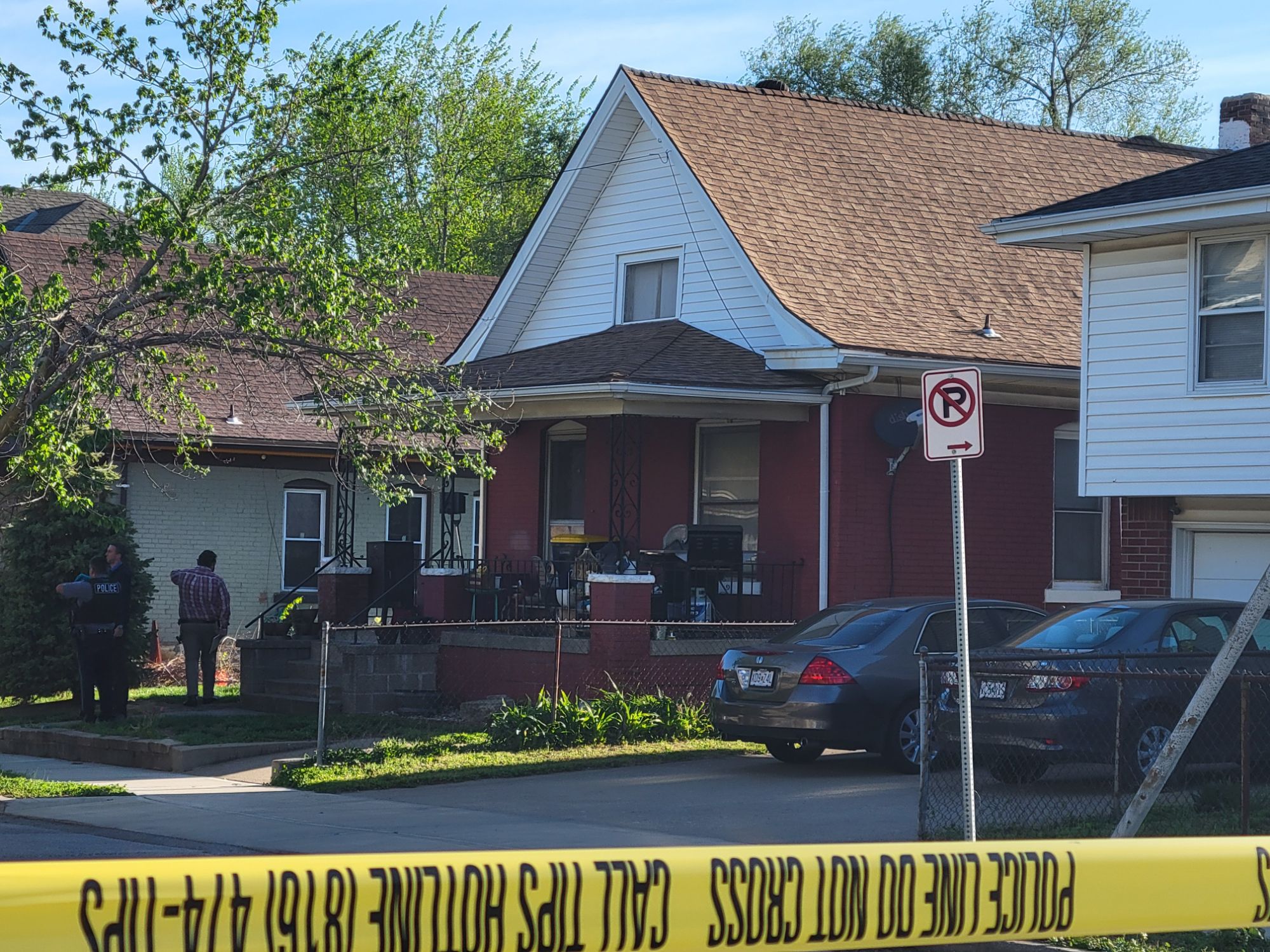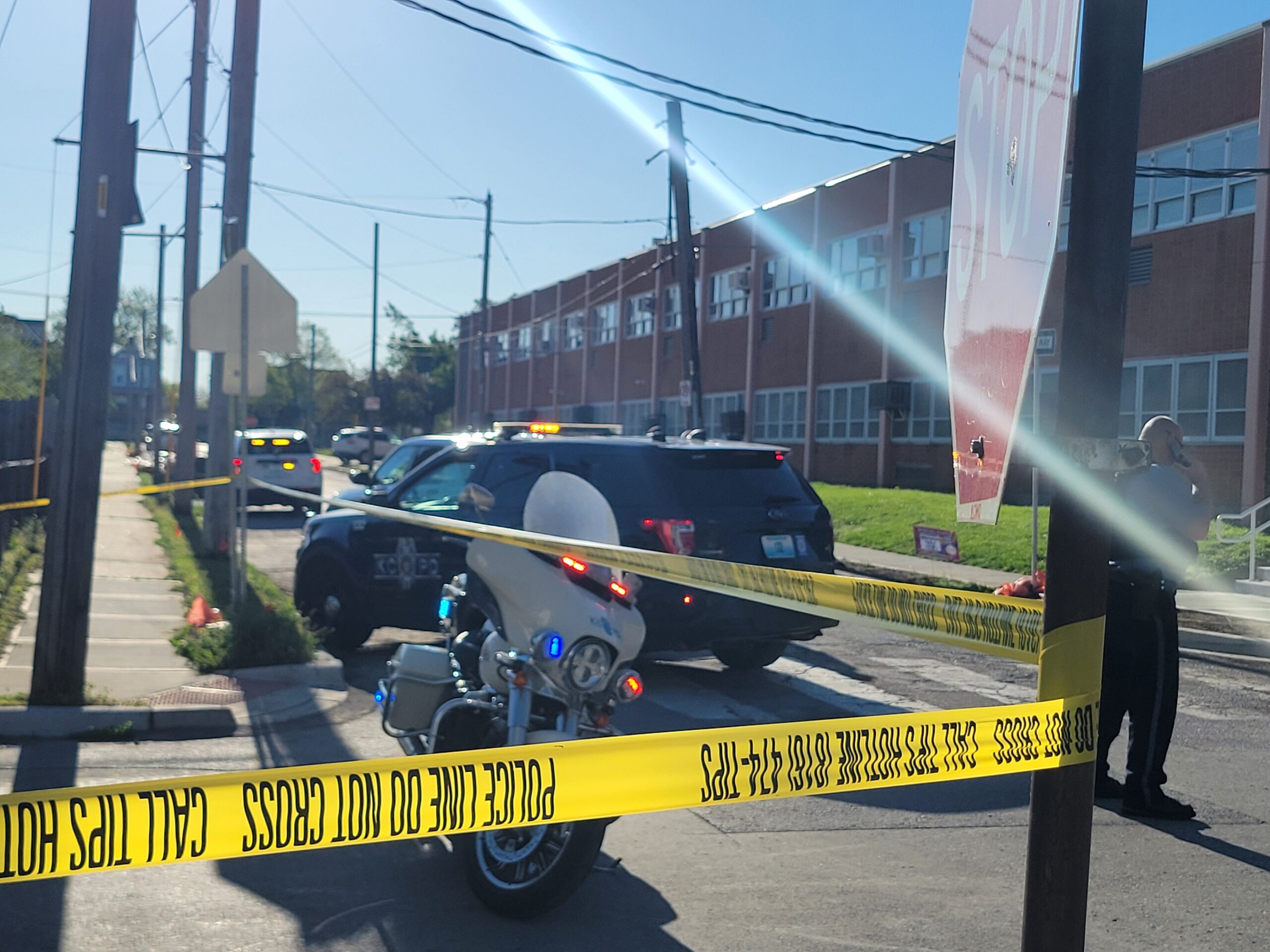
By Paul Thompson
Northeast News
June 15, 2017
KANSAS CITY, Missouri – For the second time in as many weeks, the Kansas City, Missouri City Council hunkered down in closed session on Tuesday, June 13 to discuss the future of Kansas City International Airport.
A week before, on June 6, Council members emerged from closed session saying that the June 20 deadline to submit bids for the construction of a new single terminal airport was likely to be extended for 45-60 days. Councilman Quinton Lucas got that process going when he proposed a resolution during the Council’s Thursday, June 8 legislative session which aimed to provide the Council with more control over the bidding process.
One aspect of the resolution established that the Council would provide final approval of the Request for Qualifications/Proposals before the document was distributed publicly. According to Council members present at the June 13 closed session, the Council, City staff and outside counsel went line-by-line through the document to accomplish that very goal. By the time the Council emerged from the two-hour closed session, the RFQ/P had been approved. The second addendum to the RFQ/P, titled Addendum No. 2, was publicly released by the City later that evening.
The updated RFQ/P adopts a bifurcated process for accepting single terminal airport bids – meaning that the bidding process has been split into two separate deadlines. July 27 will be the deadline to submit initial sealed qualifications; from there, the City will narrow down a list of finalists. By August 10, those finalists will be required to submit a second bid laying out the financing details. A contract will then be awarded, and the City Council will have just two weeks to craft ballot language ahead of its August 24 legislative session. Ballot language is required to be submitted by August 29 in order to appear on the November 7, 2017 ballot, as intended.
Addendum No. 2 lays out the process by which proposers will present their bids. All proposers will be expected to make formal presentations to the selection committee that are 90 minutes in length – 60 minutes for a proposer presentation and 30 minutes afterwards to respond to questions.
Fourth District Councilwoman Jolie Justus, Chair of the Airport Committee, broke down the bid deadlines following the June 13 closed session.
“It’s actually 45 days from today for qualifications, with an additional 15 – to make it a total of 60 days – for the finance portion,” Justus said. “So it’s basically a bifurcated process, where anyone who thinks they’re qualified to put in a bid has to have their proposal within 45 days, and then they’ll have an additional 15 days to say how they’re going to finance it.”
The new addendum is significantly more specific than its predecessors, and begins with a note to all prospective proposers stating that the most recent update “shall control” in the event of conflicts with previous versions of the RFQ/P.
A new exhibit in Addendum No. 2 describes the City’s commitment to Minority Business Enterprise/Women Business Enterprise (MBE/WBE) participation. Though specific guidelines are not included, the exhibit describes a range of expected participation for construction and professional services. For Construction services, the City hopes to see between 13% and 16% MBE and between 7% and 11% WBE participation. For professional services, the anticipated goals will be between 13% and 15% MBE and between 7% and 10% WBE participation. Final MBE/WBE participation goals will be established by the City’s Human Relations Department once a final proposer has been selected.
Another new section of the RFQ/P asks proposers whether they would be willing to “reimburse legal and consulting costs incurred and to be incurred by the City in reviewing and negotiating project proposals, financing documents and other transaction documents.” That section also notes that the city may include transaction fees to be paid at a transaction closing.
The second addendum also asks for more detailed personnel information from bidders up front. It asks proposers to name a designated representative to serve as a liaison between the City and the bidder, while also requiring proposers to identify “specific individuals” who will serve as the project executive, project director, lead contractor, lead design team(s), and other lead personnel, respectively. The revised text further seeks assurances that key identified parties will not be added or removed from the proposer’s team without the written consent of the City.
In the portion of the RFQ/P which considers the proposer’s project approach, Addendum No. 2 describes in greater details what the City wants in its new airport. The updated document now asks for the proposer’s approach to “procuring, designing, building and successfully delivering appealing airport passenger terminal buildings, aircraft apron parking, hydrant fueling system, deicing pads, structured and surface parking, and terminal access roadways,” with special consideration given to appealing to Kansas City citizens and airline tenants, while simultaneously establishing a focus on innovation. Newly inserted language addresses the process for penalizing delays, previous working relationships with airport owners and airline tenants, the proposer’s ability to respond to any new potential government mandates, the proposer’s willingness to open a satisfactory dialogue with the public and the bidder’s aptitude for identifying cost savings through value engineering.
The RFQ/P further lays out how the City will evaluate the submitted proposals once they are received. In short, a selection committee will rank the proposers from most to least qualified. That committee will consist of one member selected by City Manager Troy Schulte and four members designated by the director of the contracting department. A City Council member serving as the “chairperson of the city council committee cognizant of public improvements” may also serve on the committee, or designate another Council member to serve on the committee in his or her stead.
5th District Councilman Alissia Canady said after the June 13 closed session that the tone of the discussions between the City Council, City Manager, City staff and outside legal counsel has improved considerably as the Council has been provided more details and more control over how the RFQ/P will look.
“Any time you’re able to provide understanding, you’re going to have more collegiate discussions,” Canady said.
The financing component of Addendum No. 2 is another portion of the RFQ/P that is now significantly more specific than previous incarnations. The initial RFQ/P included just four subsections related to the financial approach, and the financing portion was expected to be submitted by June 20, the same date that the bidder qualifications were due. Under Addendum No. 2, proposers will now have nearly two months to respond to the 21 subsections related to financing. One section asks proposers to consider the issuance of airport revenue bonds, as 4th District Councilwoman Katheryn Shields suggested in an ordinance she introduced to the full City Council on Thursday, June 8.
“To the extent the City evaluates proposer’s financial approach against an airport revenue bond model, please clarify any aspects of the proposer’s response to this RFQ/P that would be impacted and in what respect if such airport revenue bond model is applied,” reads the section of the revised RFQ/P.
Some Council members exited the June 13 closed session suggesting that private financing is the fastest and cheapest path to the construction of new single terminal airport.
“You’re able to build faster with private financing, so you’re able to shave about two years off the project,” Canady said. “The cost of construction increases 6-8% per year, so if you’re able to build on an accelerated time frame, then you do realize savings on a number of different levels there.”
Shields shared her belief, however, that the City can save money over the life of the project by publicly financing the airport project. The Council is expected to continue the public/private debate when they return from break in the last week of June.
“I think the Council is very confused on this issue, which is why I introduced my ordinance,” Shields added. “I hope that when we get back from the break next week that we will have a public hearing on it.”
Councilwoman Justus suggested that Kansas City taxpayers have indicated that they would prefer private financing over public financing.
“When you put something in front of the voters, which is what we’re proposing doing, folks believe that you are voting on it because there will be an increase in taxes. That is not the case here. We are voting on this because the previous Council said, ‘We are going to vote on this,” Justus said. “Frankly, I also want this to pass the vote of the people. What I have heard overwhelmingly is that when you talk about this as a privately-financed project instead of a publicly-financed project, you bring a lot of additional voters to the table who say yes. People don’t want to vote for it if they think taxpayer dollars are on the hook.”
Fifth District Councilman Lee Barnes, who was the first to emerge from the June 13 closed session, commented on the improved tenor of the discussions as the Council is becoming more involved in the process.
“Everybody’s getting along perfect,” Barnes said with a smile. “We all love each other.”


















